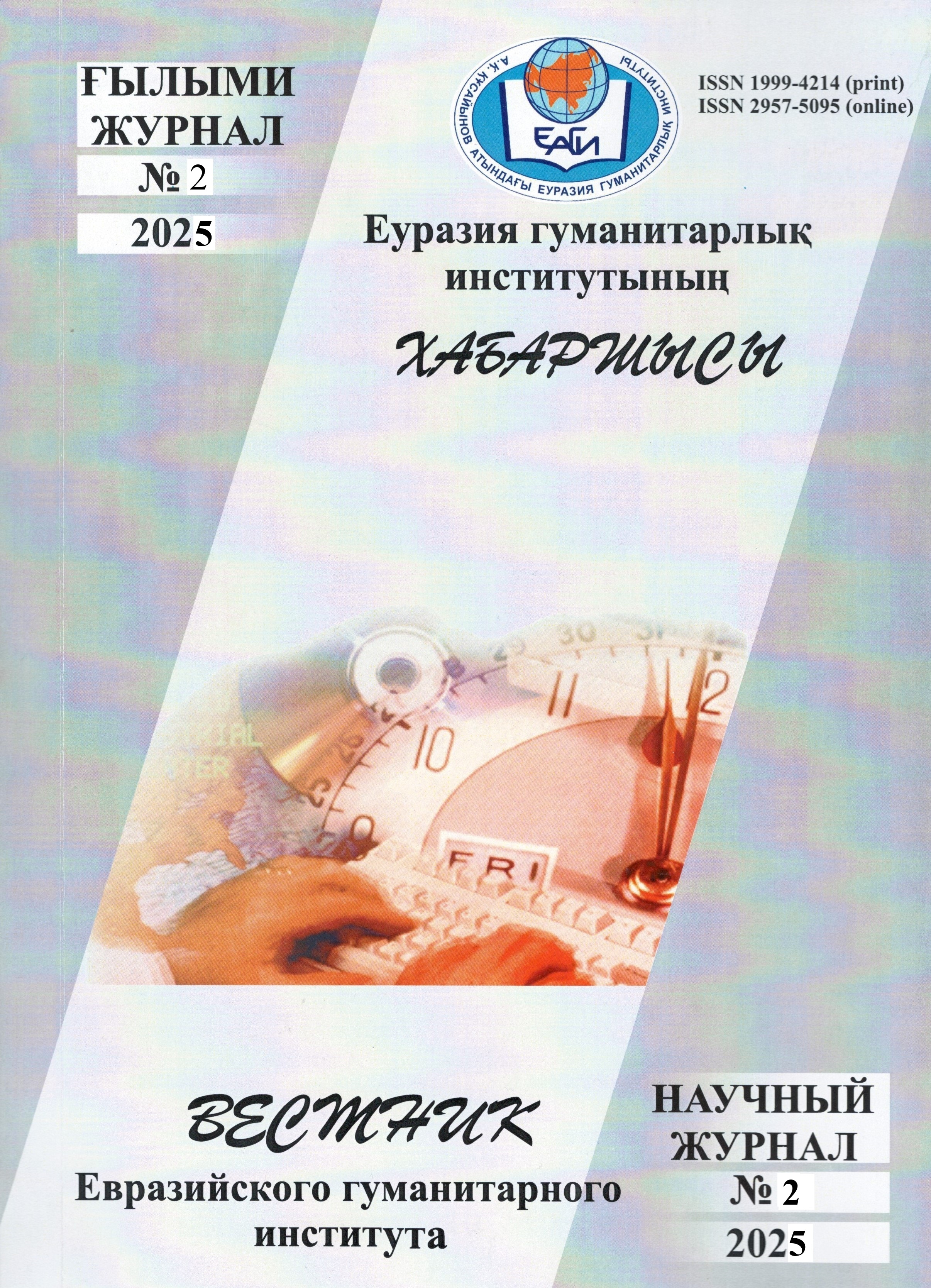THE PARADIGM OF CONTEXTUAL SYNONYMY
DOI:
https://doi.org/10.55808/1999-4214.2025-2.03Keywords:
contextual synonyms, semantic field, lexical synonym, pragmatic meaning, syntactic synonym, pragmatic connections.Abstract
In linguistics, synonyms are considered one of the primary tools for conveying the meaning of a word. Their function as lexical units has been extensively explored. Research demonstrates that the study of synonyms in any language yields significant linguistic insights. This article addresses the phenomenon from the perspective of synonym usage in speech.
The article analyzes the paradigm of contextual synonyms in the Kazakh language. It examines the level of scholarly investigation, their position within the language system, semantic and stylistic features, and their role in text construction. The study highlights the semantic nuances of synonyms in context, their domains of use, and their function in conveying the author’s intent.
The article explores synonymic series, their contextual usage, and classifications as presented in the works of leading linguists. It considers collocability, semantic valency, and syntactic roles of synonymous units. The theoretical foundation relies on the works of renowned scholars such as A. Bolganbayev, K. Akhanov, A. Aigabylov, A. Salkynbay, B. Sagyndykuly, G. Smagulova, B. Shaladay, G. Khasenov, and Yu.D. Apresyan. Special attention is given to the pragmatic and stylistic substitutability of synonyms within utterances. The findings support the recognition of contextual synonyms as independent semantic units and contribute to a deeper understanding of synonymy in Kazakh linguistics.


